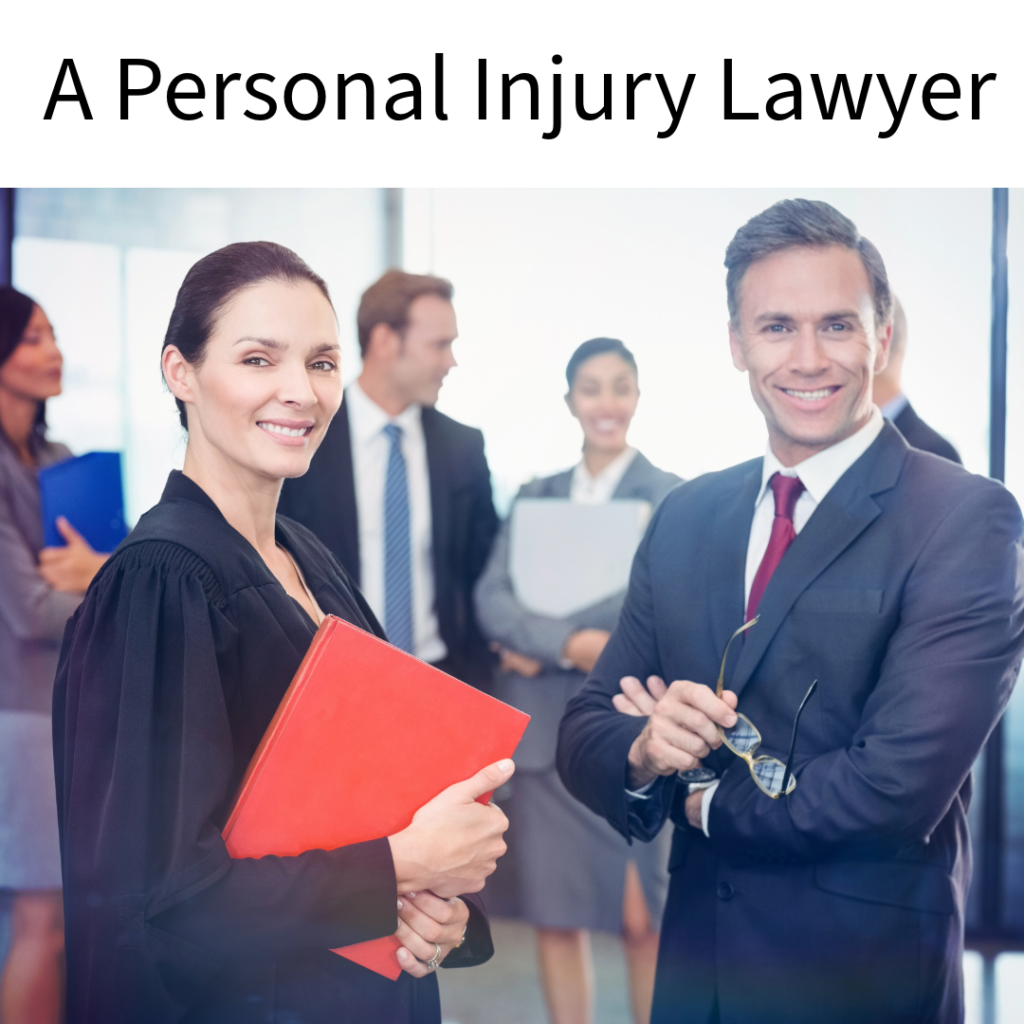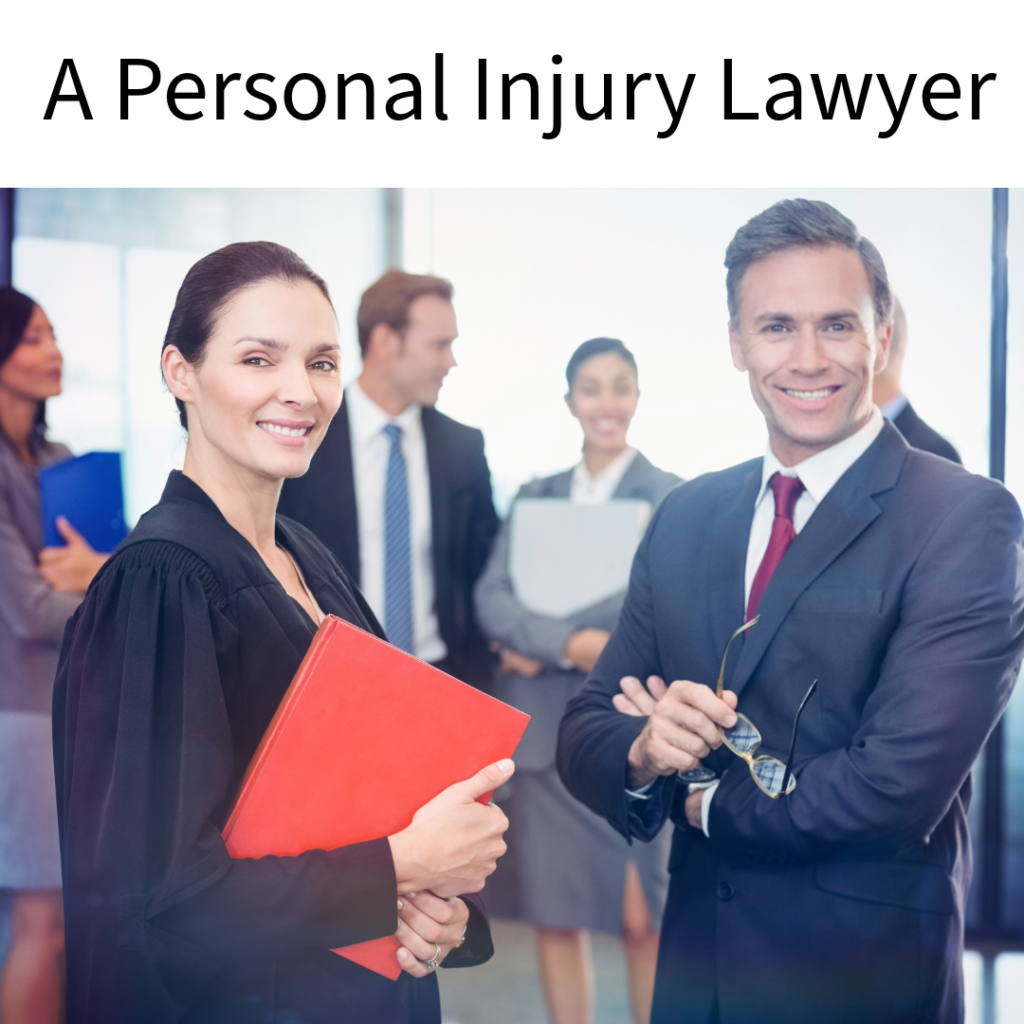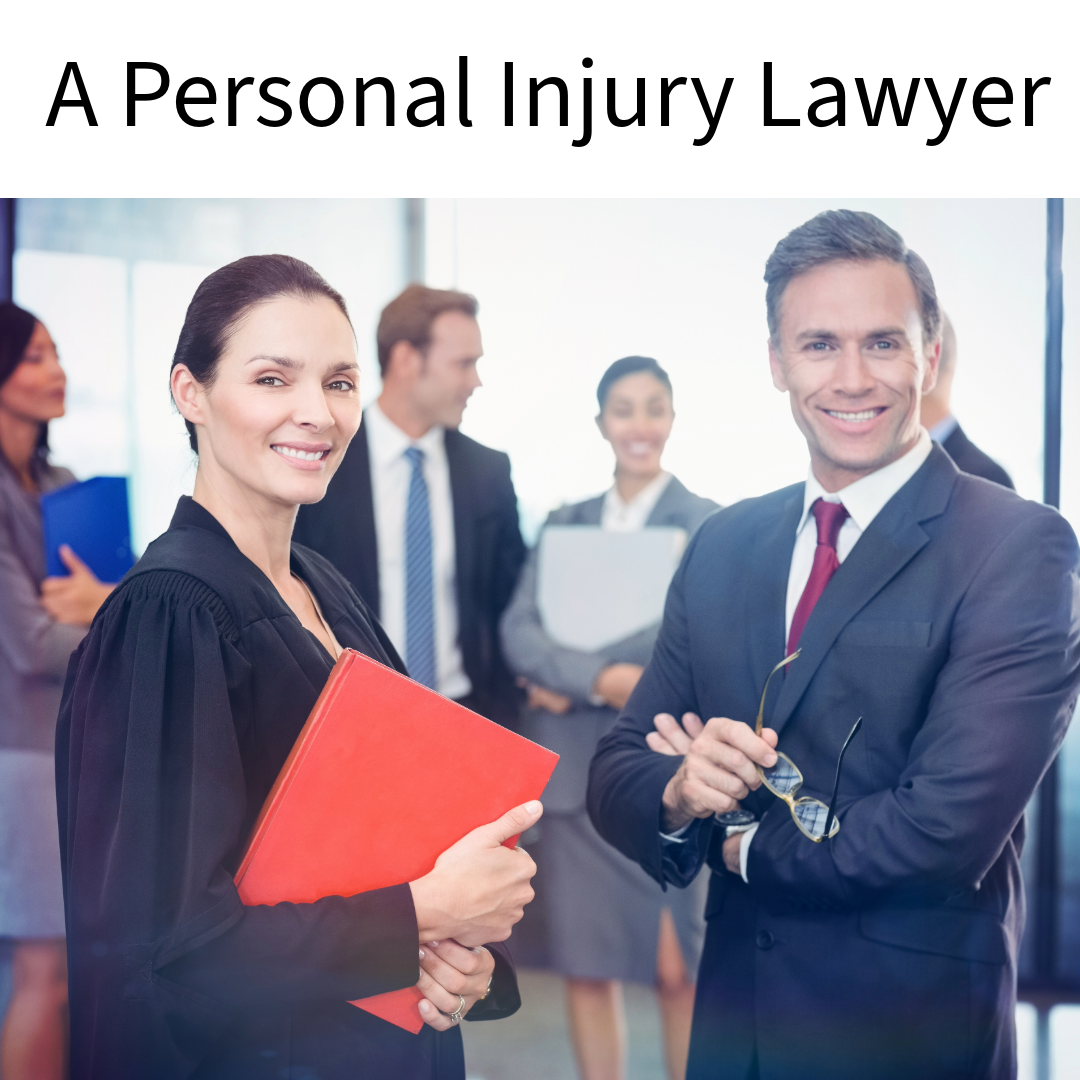A Personal Injury Lawyer: Personal injury lawyers play a pivotal role in helping individuals navigate the complex legal terrain after an injury. In a world where accidents and unforeseen events can disrupt our lives, the role of a personal injury lawyer becomes crucial. a personal injury lawyer These legal professionals specialize in representing individuals who have suffered physical or psychological harm due to the negligence or intentional actions of others. Let’s delve into the world of personal injury law, exploring the qualities of a good lawyer, types of cases they handle, and the intricate process of seeking justice. Whether it’s a car accident, a slip and fall incident, or medical malpractice, these lawyers serve as advocates for those seeking compensation for their suffering. It’s essential to understand the significance of seeking legal help promptly after an injury to ensure the best possible outcome.
A Personal Injury Lawyer:

Understanding Personal Injury Law:
Personal injury law serves as a crucial mechanism for individuals seeking justice and compensation after suffering harm due to the negligence or intentional actions of others. This introduction sheds light on the importance of personal injury lawyers in guiding individuals through the complexities of legal processes following an injury.
Types of Cases Handled by Personal Injury Lawyers:
Personal injury lawyers are legal professionals specializing in representing individuals who have suffered harm due to the negligence or intentional actions of others. This article aims to provide a comprehensive guide to the types of cases handled by personal injury lawyers, offering insights into the diverse scenarios where their expertise becomes indispensable.
Motor Vehicle Accidents:
Among the most common cases handled by a personal injury lawyers are motor vehicle accidents. This includes car accidents, motorcycle accidents, truck accidents, and other incidents involving vehicles. Lawyers in this field navigate complex insurance claims and legal processes to secure compensation for injuries sustained in these accidents.
Slip and Fall Incidents:
Slip and fall incidents fall under premises liability, where property owners are responsible for maintaining safe conditions. Personal injury lawyers help individuals who have been injured in slip and fall accidents due to hazardous conditions on someone else’s property, such as wet floors, uneven surfaces, or lack of warning signs.
Workplace Injuries:
Personal injury lawyers also handle cases related to workplace injuries. This includes accidents on construction sites, industrial accidents, and injuries caused by unsafe working conditions. Lawyers in this category help workers pursue compensation, including medical expenses and lost wages.
Assault and Intentional Torts:
In cases of assault or intentional harm, personal injury lawyers help victims pursue compensation for the physical and emotional consequences of these acts. This may include injuries sustained in fights, assaults, or other intentional torts.
Wrongful Death Tragically, personal injury lawyers are often involved in cases of wrongful death. They represent the surviving family members and seek compensation for the loss of a loved one due to the negligence or wrongful actions of another party.
Qualities of an Effective Personal Injury Lawyer:
Selecting a personal injury lawyer is a critical step in seeking justice and compensation after an injury. An effective personal injury lawyer possesses a unique set of qualities that go beyond legal knowledge. This article serves as your guide, outlining the essential attributes that make a personal injury lawyer effective in advocating for your rights.
Expertise and Experience:
At the core of an effective personal injury lawyer is expertise coupled with experience. A deep understanding of personal injury law, statutes, and case precedents, combined with a history of handling diverse cases, ensures your lawyer can navigate the complexities of your situation with finesse.
Strong Negotiation Skills:
Negotiation is often a key aspect of resolving personal injury cases. An effective lawyer possesses strong negotiation skills, allowing them to secure fair settlements without unnecessary legal battles. This quality is crucial for expeditiously obtaining compensation for their clients.
Compassion and Understanding Dealing with the aftermath of an injury is emotionally taxing. An effective personal injury lawyer brings compassion and understanding to the table. They empathize with their clients, recognizing the physical and emotional toll of the situation and providing support beyond legal guidance.
Clear Communication:
Effective communication is a linchpin in the lawyer-client relationship. A personal injury lawyer should be adept at conveying complex legal concepts in a clear and understandable manner. Clear communication fosters trust, keeping clients informed about the progress of their case.
Tenacity and Perseverance:
The legal journey can be challenging, requiring tenacity and perseverance. An effective personal injury lawyer is resilient, not easily discouraged by obstacles. They persevere, ensuring every avenue for justice is explored on behalf of their clients.
Investigative Skills:
A strong foundation for any personal injury case lies in effective investigation. Lawyers with exemplary investigative skills can gather evidence, interview witnesses, and collaborate with experts to build a compelling case. Thorough investigations enhance the chances of a successful outcome.
When to Hire a Personal Injury Lawyer:
Knowing when to hire a personal injury lawyer is crucial for individuals who have suffered injuries due to someone else’s negligence. This guide provides a comprehensive overview of the circumstances that warrant the hiring of a personal injury lawyer, ensuring you make informed decisions during challenging times.
Serious Injuries:
If you’ve sustained serious injuries as a result of an accident, it’s advisable to hire a personal injury lawyer. Serious injuries may include fractures, traumatic brain injuries, spinal cord injuries, or any condition requiring extensive medical treatment. A lawyer can help you pursue the compensation needed for medical expenses, rehabilitation, and future care.
Long-Term or Permanent Disabilities:
In cases where injuries lead to long-term or permanent disabilities, the expertise of a personal injury lawyer becomes invaluable. Navigating the legal complexities of securing compensation for ongoing medical care, loss of earning capacity, and changes in the quality of life requires the assistance of a legal professional.
Complex Legal Procedures:
Personal injury cases involve intricate legal procedures that may be overwhelming for those without legal expertise. If you find the legal process confusing or feel uncertain about filing court documents, a lawyer can guide you through each step, ensuring your case adheres to legal requirements.
Scheduling the Consultation:
The journey typically begins by scheduling an initial consultation with a personal injury lawyer. Many law firms offer free consultations, providing an opportunity for potential clients to discuss their case without financial commitment. During this phase, it’s essential to gather pertinent documents, including accident reports, medical records, and insurance information.
Understanding the Lawyer’s Expertise:
Personal injury law encompasses various specialties, including motor vehicle accidents, medical malpractice, and premises liability. In the initial consultation, the lawyer will assess the specifics of your case and clarify their expertise in handling similar situations. This ensures a tailored approach to your unique circumstances.
Discussing the Details of the Accident:
A significant portion of the initial consultation revolves around discussing the details of the accident. The lawyer will inquire about the circumstances leading to the injury, the parties involved, and any available evidence. Providing a comprehensive account helps the lawyer assess the viability of your case.
Evaluating Injuries and Damages:
Understanding the extent of your injuries and resulting damages is crucial. The lawyer will inquire about the nature of your injuries, medical treatments received, and the impact on your daily life. This evaluation forms the basis for calculating potential compensation and building a compelling case.
Exploring Insurance Coverage:
During the consultation, the lawyer will explore existing insurance coverage related to the accident. This includes your insurance policies and those of other involved parties. Understanding the insurance landscape helps formulate a strategy for pursuing compensation, whether through negotiations or litigation.
Legal Options and Strategies:
Based on the information provided, the lawyer will discuss potential legal options and strategies. This may involve filing a personal injury lawsuit, negotiating with insurance companies, or exploring alternative dispute resolution methods. Clear communication about the path forward empowers clients to make informed decisions.
Addressing Concerns and Questions:
The initial consultation is an opportune time to address any concerns or questions you may have. Whether it’s about the legal process, potential timelines, or the lawyer’s fees, an open dialogue ensures transparency and helps establish a trusting attorney-client relationship.
Building a Strong Case:
Eyewitness accounts can significantly strengthen your case. Obtain contact information from individuals who witnessed the accident. Later, your lawyer can reach out to these witnesses to gather statements supporting your version of events. Witness testimony adds credibility and depth to your evidence.
The first and foremost step in gathering evidence is seeking immediate medical attention. Prompt medical care not only ensures your well-being but also establishes a crucial link between the accident and your injuries. Medical records serve as foundational evidence in personal injury cases.
In cases involving specialized knowledge, consult with experts relevant to your situation. This may include accident reconstruction experts, medical professionals, or engineers. Expert opinions can lend credibility to your case, especially when complex technical details are involved.
Negotiating with Insurance Companies:
Insurance adjusters play a pivotal role in the negotiation process. Their primary responsibility is to assess claims and determine settlement offers on behalf of the insurance company. Recognizing their role as representatives of the insurer helps in navigating negotiations effectively.
Initiate negotiations with a clear and strong position. Present your case confidently, emphasizing the strength of your evidence and the validity of your claims. Clearly articulate your expectations and be prepared to support them with documentation and legal arguments.
When the insurance company presents a settlement offer, evaluate it critically with your lawyer. Consider whether the offer adequately compensates for your damages, including future expenses. If the offer falls short, your lawyer can negotiate for a more favorable agreement or explore other avenues, such as mediation
Mediation and Alternative Dispute Resolution:
If negotiations reach an impasse, mediation or alternative dispute resolution (ADR) may be viable options. A neutral third party facilitates discussions to reach a mutually agreeable settlement. Your lawyer can guide you on whether these alternative methods align with your case’s goals.
Opening Statements:
Once the jury is selected, the trial begins with opening statements. Your lawyer will present an overview of your case, outlining key facts and establishing the narrative. The opposing party will also deliver their opening statement. These statements set the stage for the evidence and arguments to follow.
Presentation of Evidence:
The heart of the trial is the presentation of evidence. Both parties will present their case through witness testimony, documents, photographs, and other relevant materials. Your lawyer will carefully present evidence that supports your claims, refuting the opposing party’s arguments. The judge ensures the proceedings adhere to legal standards.
Closing Arguments:
Closing arguments provide a final opportunity for both parties to address the jury. Your lawyer will summarize the key points, reiterate the strength of your evidence, and emphasize why the jury should rule in your favor. The opposing party will present their closing arguments, attempting to counter your case.
Jury Deliberation:
After closing arguments, the jury enters deliberation. They review the evidence, consider the arguments presented, and reach a verdict. Deliberation times vary, and the jury must reach a unanimous decision. Your lawyer will await the verdict, providing guidance and support during this crucial phase.
Post-Trial Procedures:
After the trial, there may be post-trial motions or appeals. These legal processes can address issues that arose during the trial or challenge the verdict itself. Your lawyer will navigate these proceedings if necessary, ensuring your rights are protected even after the trial concludes.
Dealing with Legal Costs:
Many personal injury lawyers work on a contingency fee basis. This means that the lawyer’s fees are contingent on winning the case. If the case is successful, the lawyer receives a percentage of the awarded compensation. If the case is unsuccessful, the client typically does not pay legal fees. Contingency fees make legal representation accessible to individuals without upfront costs.
Transparency in Fee Structures:
When hiring a personal injury lawyer, transparency in fee structures is crucial. Ensure that you fully understand the lawyer’s fees, including the contingency percentage, any additional expenses, and how costs will be managed throughout the case. Clear communication about financial matters builds trust and avoids surprises later in the process.
Recovery of Costs in a Successful Case:
In successful personal injury cases, the prevailing party may seek to recover certain costs from the losing party. These costs can include legal fees, court costs, and other reasonable expenses incurred during the litigation. Your lawyer can provide guidance on the potential recovery of costs based on the specific circumstances of your case.

Conclusion:
It concludes, In the aftermath of an accident or injury, the role of a personal injury lawyer becomes pivotal in navigating the complexities of the legal system and seeking justice. This conclusion summarizes the key aspects of how a personal injury lawyer can make a difference in your journey to recovery and compensation.
FAQs:
- How much does it cost to hire a personal injury lawyer?
- The cost varies, but many personal injury lawyers work on a contingency fee basis, meaning they only get paid if you win your case.
- How long does a personal injury case usually take?
- The duration varies, but factors like the complexity of the case, negotiations, and court schedules can influence the timeline.
- What evidence is crucial in a personal injury case?
- Essential evidence includes medical records, eyewitness accounts, photographs of the scene, and any relevant documentation of expenses.
- Can I handle a personal injury case without a lawyer? While it’s possible, having a lawyer significantly improves your chances of a successful outcome and ensures you navigate the legal complexities effectively.
Also Read:
How to apply to Keiser University: Unlocking Future 2024
Who is the Best Auto Accident Lawyer: Unveiling truths 2024
